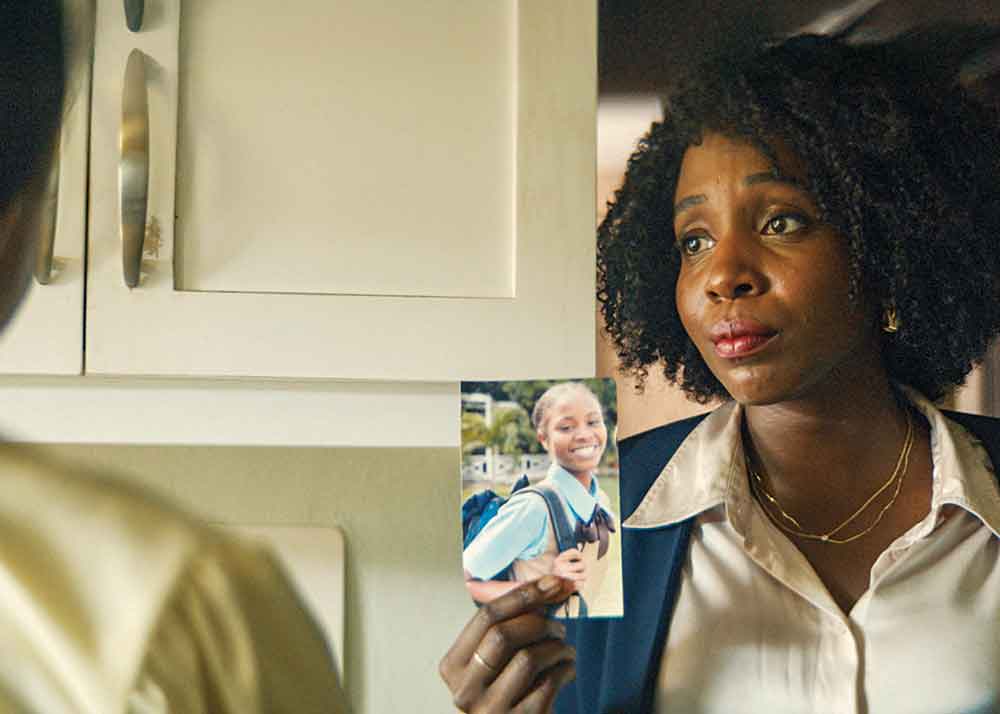A Scotland Yard cop returns to her homeland of Jamaica in gritty crime drama Get Millie Black
When Scotland Yard officer Millie-Jean Black (Tamara Lawrance) finds out about the death of her mother, she returns to her native Jamaica determined to reunite with her estranged sibling, Hibiscus (Chyna McQueen). There, she joins the Kingston police force where she advocates for missing persons in a city where most that disappear are never sought after. But for the Londoner, the island she once called home now presents challenges, both personal and professional, that push Millie to limits she rarely has the patience for.

Millie’s homecoming is set against the backdrop of a capital city that has both evolved and not at all since both the fictional series protagonist and its real-life player last saw the country. For Lawrance, the return to Kingston, Jamaica, awakened new thoughts about her heritage. “I wasn’t raised there, but I had to form a relationship with the country that I thought I knew,” she says. “Having to reckon with how Jamaicans perceive me as a British Jamaican — not growing up with privilege but recognizing that it is a relative privilege to grow up in Britain, as much as I wanted to back against that stereotype — I learned a lot of things about myself through this.”

The series’ creator, Jamaican book author Marlon James, compares Millie’s return to his own, having moved to the United States in the mid-aughts due to anti-gay violence in his home country. “To be confronted with the past and the present and the future at the same time, you can go dizzy,” explains James, who marks his first foray into television, having authored five novels exploring identity struggles within Jamaican culture. “I realized pretty early in my writing career that when you’re telling these personal stories, particularly about Jamaican women, you’re kind of telling the story about Jamaica, and that’s what happened [here],” says James. “Even though it’s primarily a story about Millie and Millie’s relationships, it also ended up being a story about where we are now as a country, in terms of queer rights, patriarchy and sexism.”
In the case of Millie, finding a young schoolgirl that has gone missing becomes an unhealthy obsession that soon puts others, including her partner on the police force (Gershwyn Eustache Jnr), in danger. But what subconsciously possesses the main character is something even she has yet to fully face. “Millie’s driving event is already behind her, but you never know if you ask Millie,” says James. Adds Lawrance, “I think Millie hasn’t really processed her subconscious motivations to come back, which is to make up for a past that she can never change.”

For Lawrance, both her character’s resolve and her blind spots were on the page, ready for her to dive into. “The moments of her vulnerability and wanting to re-establish a relationship with a bereft sibling gave me a lens into her inner world and her deeper motivations,” she says. “But also, the overarching sense of justice, linked to the fact that she came from an abusive home, creates a belligerence in Millie where she’s like, ‘I don’t have time to play.’” As Millie makes moves that are equal parts bold and questionable, Lawrance says the only choice she had, as an actor, was to lean in and not judge the character. “It’s not the kind of character you can play by halves,” she says. “For me, it’s seeing somebody put her instincts and her work first. There is much to be admired about her and about that.”
While Millie’s character arc is a full meal in itself, having a propulsive mystery drive the story forward allows for an even broader cultural dive. “One of the things that first drew me to Marlon’s story, and Millie as a character, is that she’s willing to tear down everything in the pursuit of this singular goal,” says exec producer Simon Maxwell . “That obsession allows us a means of working through Jamaican, and particularly Kingston, society – from the slums and the gullies to middle class homes and ordinary lives that have been overturned by crime and corruption, all the way to the former plantation owners. You get this full sweep of society through the eyes of that character, and therefore you get to reassess everything that we thought we knew about Jamaica.”
What makes Get Millie Black even more unique is that it shares its perspective among its main characters throughout its five episodes. “It is about Millie Black, but she’s not the only one in the spotlight,” says exec producer Jami O’Brien. “I really love that each character gets their day. Our point of view on Millie shifts from episode to episode. Our point of view on Hibiscus shifts from episode to episode. What their relationship is shifts from episode to episode. This sibling relationship is really at the heart of the show. It’s not often that we see that on TV.”
The season finale of Get Millie Black airs Monday, December 23, on HBO Canada
